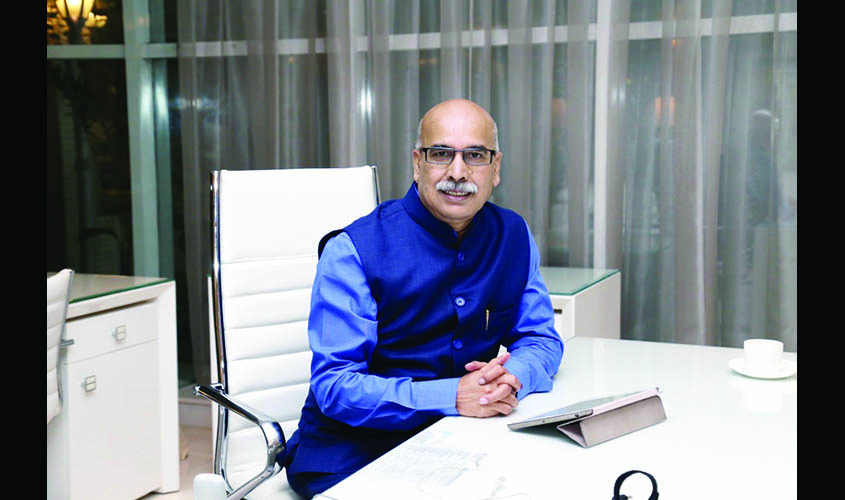‘Art is creativity, driven by the urge to express oneself,” said Dinesh Singh, the founder of Navrasa Duende, a venture that is aimed at promoting various performing arts. An engineer during the day and an art connoisseur by evening, Singh makes getting the best of both worlds look easy.
Art, for him, is all about harmonising the mind and body with the outside world—with people and nature. He believes that art is a universal force that brings people together. “Art is the glue that has held the cultural universes together since the dawn of human civilisation. It is the vehicle that will drive humanity and its marvels into the future,” he said.
In his early years, Singh was an active member of various theatre groups such as Indian People’s Theatre Association (IPTA) and Dishanter, and has worked as an actor, playwright and director with them. When asked how this experience enriched him, Singh responded, “Flight of imagination! Theatre teaches you to create a universe, enact history, politics, revolutions, wars, human conflicts and social subjects in a space. It allows you to achieve the desired impact on the audience by choosing multiple types of narrative techniques and formats.”

It was during these years that he got to work with the legends from the world of theatre. Singh has been mentored by renowned playwright and critic S.M. Mehdi, and popular theatre director and playwright B.M. Shah. He owes his understanding of theatre and the performing arts majorly to these two, who, he said, were very different in their approach. “S.M. Mehdi had a preference for a minimalist approach towards production and believed in satire and humour, crisp script, mature content, basically the approach Charlie Chaplin used in his movies. Shah, on the other hand, believed in direct drama, making actors a part of the audience. He was himself both an actor and director, therefore he used to write actor-friendly scripts,” he pointed out.
He called Mehdi “impassionate” and a “non-believer” and contrasted his approach to theatre with Shah’s very passionate indulgence with the art form. As he takes a journey down the memory lane, he suddenly appeared to be gripped by a sense of nostalgia of the ’70s, which according to him was the “best decade of Indian theatre”, with “world-class scriptwriters, theatre groups, directors, actors, a lot of originals as well as adaptations of international plays that were entirely committed to the cause of theatre”.
“Those were the years when we had great artists in all forms of the arts—music, dance, literature. They had very high standards, purity, devotion and were in it not for any materialistic reasons… They also had a great deal of integrity and honesty. When you grow up in such a healthy and conducive environment for the arts, it does rub on you for the better,” Singh added.
Singh has a deep understanding of music, theatre, cinema and other forms of the visual arts. But films, in particular, excite him the most. So when Guardian 20 asked him about the medium, he quoted the famous Swedish director and writer Ingmar Bergman: “No form of art goes beyond ordinary consciousness as film does, straight to our emotions, deep into the twilight room of the soul. When film is not a document, it is dream.”
Watching cinema is much more than just entertainment for him. He undertakes the exercise sometimes to understand the various cinematic movements, to appreciate out-of-the-box ideas, and at times for the directors who have challenged the mainstream styles of filmmaking.
It is this love and passion for the performing arts that led him to found Navrasa Duende in 2016. Through the various activities and events planned across the year, the organisation also aims to promote young artists.
Navrasa Duende will host its fourth World Film Festival from 16-17 November at Delhi’s Sirifort Auditorium. Singh spoke to us about the selection of films for this year’s itinerary. He said, “The primary idea behind this year’s selection is to provide the Indian audience with a glimpse into the journey of world cinema over the last 100 years. We have handpicked works by the greats of world cinema across generations and movements.”
According to Singh, this edition’s picks can be divided into three categories based on the directors who have helmed the film and the nature of their work. “First, are the movies by the likes of David Lean and Francis Ford Coppola that are able to strike a perfect balance between craft and popular appeal. These become the crowd’s favourite at once while retaining the ‘classic’ element in it.”
“The second class of directors, which includes Stanley Kubrick, Christopher Nolan, Michael Haneke, Satyajit Ray and Wong KarWai, are about the craft of filmmaking, without dismissing the audience. They only demand that the viewers invest in the films to reap maximum benefits.”
“The final class is made up of those who focus purely on their craft and demand a state of complete suspension from their audience without the expectation of any pay-off. Movies that fall within this category are the most challenging to watch but equally rewarding for the discerning viewer. Ingmar Berman and Krzysztof Kieślowski exemplify this class of directors,” explained Singh.
So what is next in line for Navrasa Duende? Singh responded before signing off, “In a bid to promote the Indian dance forms in collaboration with international partners, we are planning to create productions of our own in the coming years. This initiative is also aimed at facilitating an engaging and learning platform for global artists who seek to learn indigenous art forms.”

